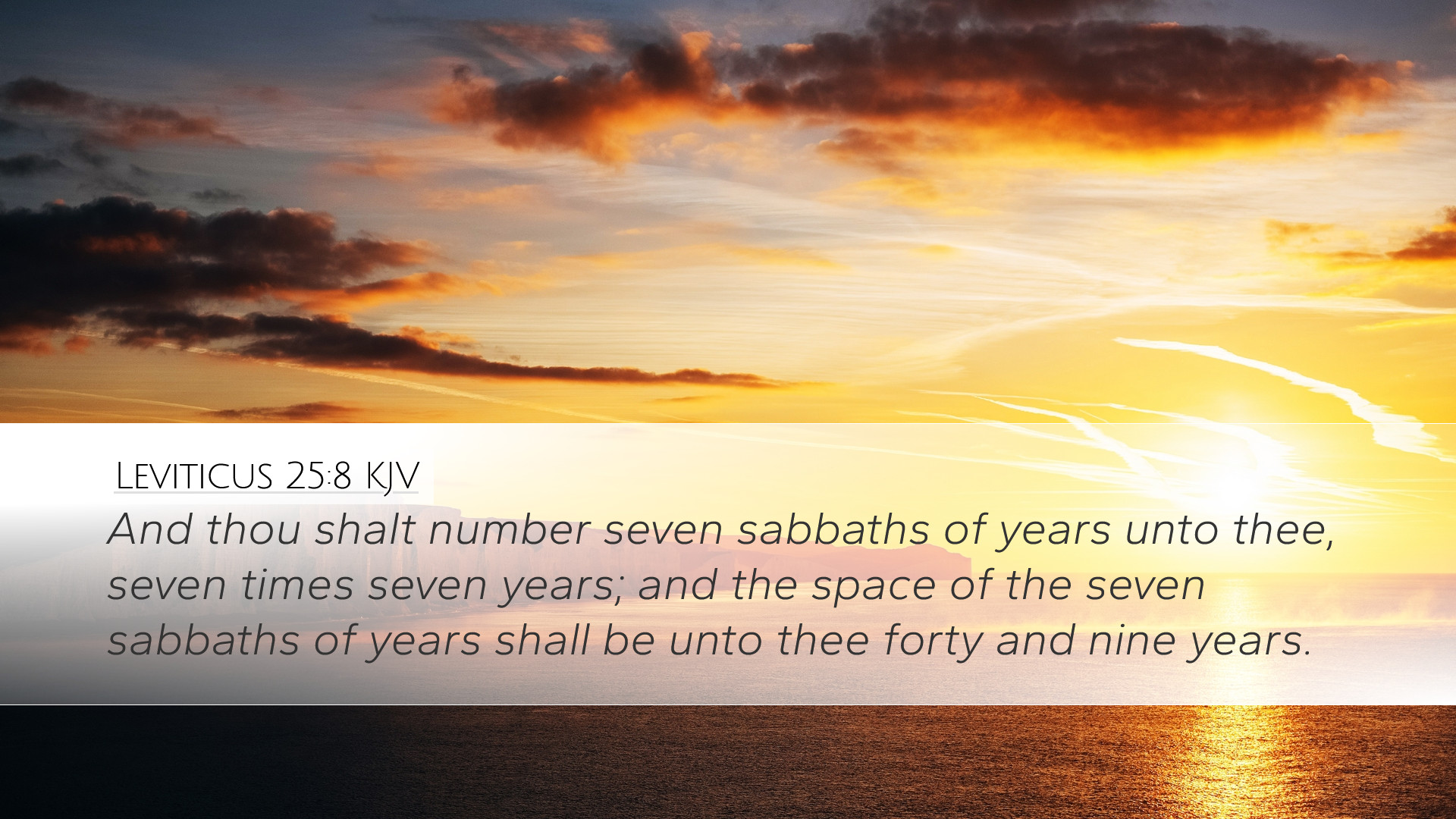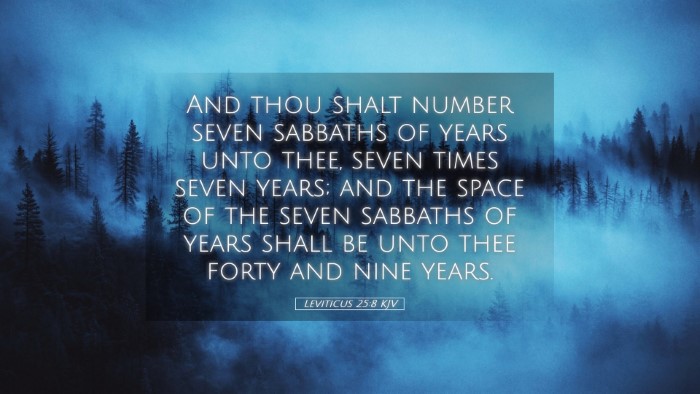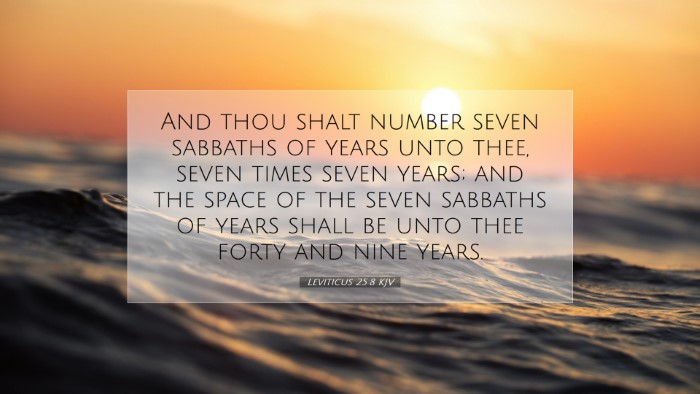Commentary on Leviticus 25:8
Verse Reference: Leviticus 25:8 - "And thou shalt number seven sabbaths of years unto thee, seven times seven years; and the space of the seven sabbaths of years shall be unto thee forty and nine years."
Introduction
Leviticus 25:8 introduces the concept of the Jubilee year, a profound period of rest, restoration, and redemption ordained by God for the Israelites. This verse lays the foundation for understanding the significance of sabbatical cycles in the Israelite economy and society.
Historical Context
The Book of Leviticus is set in the wilderness after the Exodus, where the laws presented are geared towards the sanctification of Israel and the establishment of a holy community dedicated to God. The Sabbath laws and the Year of Jubilee reflect God's intentions for social justice, economic equity, and spiritual renewal among His people.
Matthew Henry's Insights
According to Matthew Henry, this verse serves as a reminder of God’s sovereignty over the land. The command to count seven cycles of seven years highlights the importance of rhythm in the life of the community—both in spiritual observance and agricultural practice. Henry emphasizes that the Sabbaths are not just for personal rest, but command collective acknowledgment of God's provision.
Albert Barnes' Analysis
Albert Barnes elaborates on the significance of the number seven in scripture, symbolizing completeness and divine perfection. The repetition of the sabbatical cycles underscores God’s desire for the Israelites to pause and reflect on their lives and their dependence on Him. The forty-nine years ultimately lead to the Jubilee, which symbolizes liberation and the resetting of societal debts and conditions, a profound act of grace.
Adam Clarke's Commentary
Adam Clarke adds that the institution of the Jubilee, beginning after the forty-ninth year, represents a climactic return to God’s original order. Clarke notes that during this time, all land should return to its original owners, thereby prohibiting permanent servitude and promoting familial integrity. This reflects not only economic justice but also the divine right of God over all creation.
Theological Implications
The implications of Leviticus 25:8 stretch far beyond Old Testament Israel. This text points to larger themes of redemption and restoration that are fulfilled in Christ:
- Divine Rest: The sabbatical systems established a rhythm of work and rest, symbolizing the ultimate rest found in Christ (Matthew 11:28).
- Redemption: The Jubilee represents spiritual liberation, akin to Christ’s redemptive work, freeing humanity from sin and its consequences.
- Social Justice: The themes of debt forgiveness and land restoration resonate with New Testament teachings on charity and communal responsibility (Acts 2:44-45).
Practical Applications
For pastors, students, and theologians, this verse and its implications can lead to the following practical applications:
- Community Worship: Encourage practices that promote rest and community harmony, reflecting God's intended order.
- Egalitarian Principles: Advocate for social justice initiatives that mirror the principles of the Jubilee, addressing systemic inequalities.
- Spiritual Reflection: Utilize the concept of sabbaticals in personal and corporate spiritual contexts for renewal and growth.
Conclusion
Leviticus 25:8 encapsulates the heart of God’s design for His people, providing a framework for understanding rest, redemption, and restoration in community life. Through the insights of Matthew Henry, Albert Barnes, and Adam Clarke, we can see that these ancient principles remain relevant today, challenging modern believers to embrace God’s call for justice, grace, and rhythm in our lives. As we reflect on this verse, may we be inspired to cultivate a deeper relationship with God, rooted in His rhythms and purposes.


